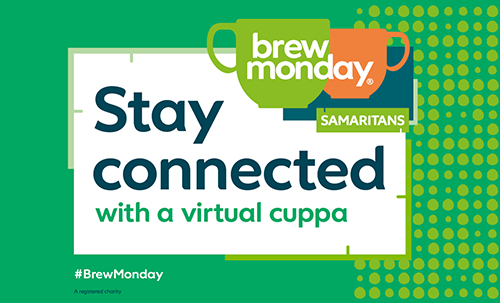Keeping mentally well and staying connected (even when we need to keep a physical distance)
Date: Tuesday 19 January 2021
Author: Cllr Piers Allen
Title: Lead member for Adult Social Care and Health and Chair of the Richmond Health & Wellbeing Board
The mental health implications of COVID-19 have been recently named by one academic psychiatrist (Sir Ian Thornicraft, Professor of Community Psychiatry at King’s College London) as The Silent Pandemic.
As his KCL blog details, the early features of 'health anxiety' have grown into a picture of more prolonged and generalised damage in public mental health, with one study in the UK finding rates of mental distress in the general population growing from 18.8% to 27.3% from the spring of 2018 to Spring 2020.
However, these significant increases do not occur equally across the population, with another survey conducted early in the pandemic finding that anxiety and depression were higher among young adults, women and people with risk factors to COVID-19.
A more recent study published over the Christmas period has highlighted the likely effects of working through the pandemic for those working on the frontline in our hospitals and healthcare settings.
With the new national lockdown, how can we all be better equipped to keep mentally well, and look out for our friends and neighbours’ mental wellbeing? A good place to start is the Council’s own web pages on mental health support, and in particular the rich online resources and self-assessment tool of the NHS-approved digital mental wellbeing service provided by Thrive London, now called Good Thinking. (For younger people in SW London, there is also the free, safe and anonymous online mental wellbeing support provided by Kooth.)
From personal experience, I know that we have to be on the look-out for unusual, if fleeting, changes in behaviour of members of our family and community, to listen out for signs of mental distress and not to hesitate to act on these by encouraging them to seek out help from their GP, or one of the online resources highlighted above. While it’s okay for us all not to feel okay all the time, particularly during these Covid-19 times, sometimes these fleeting changes can be signs of much more deep-seated mental distress or depression.
This I why I particularly like the #BrewMonday campaign just launched by the Samaritans (on 18 January, so-called Blue Monday) which encourages people to reach out to friends, family members or colleagues for a virtual cuppa and a chat, taking the time to really listen to them and help them work through what’s on their mind. And as the campaign says, "Because now more than ever, sharing a cuppa is more than a drink - it's about reaching out, checking in and staying connected."

 Stay up to date! Make sure you subscribe to our email updates.
Stay up to date! Make sure you subscribe to our email updates.
